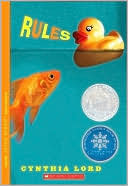
My two boys are being baptized this weekend, so covenants have been on my mind a lot lately. Because of my own ponderings I thought I’d share what I consider to be a classic title from my bookshelf with you.
His Holy Name by Dallin H. Oaks was published in 1998, but it has been a title I’ve referred to many times over the years. It’s a smaller book, but packed with excellent points to ponder.
Elder Oaks writes in the introduction that the book, His Holy Name, came about from his own search for answers on a very important question. When he was called as an apostle he was given a charge to be a special witness for the name of Jesus Christ: not just to testify of Christ but also His name. That’s a very interesting distinction. It cause Elder Oaks to do a lot of thinking, searching, and questioning of other spiritual giants to figure out just what it meant to stand as a witness to the name of Jesus Christ.
One of Shakespeare’s famous questions has to do with a rose smelling just as sweet whether or not it was named rose. It’s an interesting question for any of us. If I were named Sue, or Nancy, would I still be me? Does it matter if my husband calls me by my first name or a pet name? What about how my children address me?
Now, take those same questions and apply them to the way we refer to Heavenly Father and Jesus Christ. What does it really mean to take upon us the name of Jesus Christ when we are baptized? How do we honor that name? There are many different names applied to Heavenly Father and the Savior of mankind in the scriptures. Does it matter which name we use at any given time? Why are we specifically commanded not to take the names of deity “in vain” and what does that really mean?
Deep stuff, huh? Fortunately, like many things in the gospel, the answers can be simple, deep and poignant, or doctrinally philosophical in nature. It all depends on what we bring to the table. That’s one of the reasons I like Elder Oaks’ book. The answers to these questions could fill hundreds of pages. I get lost in those big doctrinal tomes. I lose the spirit when I read them because I’m so overwhelmed by information. Sure I can find it parts. I can be uplifted and inspired in small chunks, but I’m still a child as far as the nature of the gospel: I prefer purity and simplicity to deep understanding. Give me “Jesus loves me this I know” over “in the sixth year of the reign of the judges. . .” any day.
His Holy Name can satisfy any type of gospel reader, but it is short, sweet and to the point. Elder Oaks asks questions and answers them. Then, he tells you what he’s learned about honoring the name of the Savior and what it means in our covenants and everyday lives. I came away appreciating the Savior more, and understanding my relationship to him more, and that’s the best thing that can be achieved from any title.
If you can get your hands on it, I recommend His Holy Name as a quiet Sunday read that will bring the spirit of the Sabbath to your heart and remind you what your really doing when you go to the temple or take the sacrament. It’s one of the best doctrinal resources I have on my shelf.
Return to the Neighborhood
And while you're there, subscribe to our fantastic newsletter. In addition to being able to shop in the new virtual neighborhood, the LDS newsletter brings you LDS articles, LDS products, LDS services, LDS resources and LDS interviews from around the world—all with an LDS focus. Look for issues delivered to your email inbox every week on Monday, Wednesday, Friday, and Saturday.
LDS Newsletter Subscriptions are FREE, and joining is easy.






















